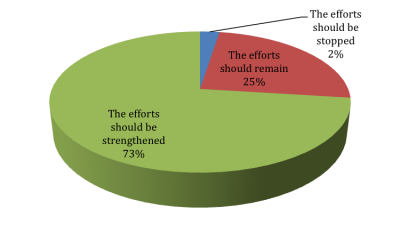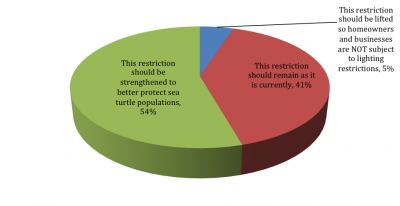Floridians want to strengthen rules designed to constrict Burmese python populations, a UF/IFAS Center for Public Issues Education survey shows.
Nearly two-thirds of state residents said a ban that outlaws owning or selling the snakes as pets should be toughened, compared to 24 percent who said it should remain the same, according to PIE Center associate director Alexa Lamm.
 Seventy-three percent believed efforts to capture and remove wild pythons should be strengthened, with 25 saying the current rules should go unchanged. Only 2 percent thought the efforts should be stopped.
Seventy-three percent believed efforts to capture and remove wild pythons should be strengthened, with 25 saying the current rules should go unchanged. Only 2 percent thought the efforts should be stopped.
“Even though most Burmese pythons are found in remote parts of the Everglades, the news coverage and striking images of these immense creatures really seem to resonate with Floridians,” said Lamm, an assistant professor in the Department of Agricultural Education and Communication. “Residents clearly see these pythons as a threat to biodiversity in southern Florida.”
PIE Center researchers added questions to this year’s endangered species survey to measure Floridians’ knowledge, attitudes and behaviors of invasive species. More than 500 Floridians responded to the online survey, which is designed to represent the entire state according to 2010 Census information. The survey is part of the PIE Center’s series of public opinion research. Other topics include water quality and quantity, immigration and food production practices.
Currently, hunters with the proper licenses can kill and remove the pythons from four wildlife management areas during any hunting season, according to the Florida Fish and Wildlife Conservation Commission. The hunters must report the date and location of any python they kill. Last year, hunters killed 68 Burmese pythons in a monthlong contest to raise public awareness.
The pythons are large, nonvenomous constrictors that threaten the Everglades ecosystem by preying on native mammals, birds and reptiles.
Lights out for sea turtles
Floridians also believed restrictions on coastal lighting should be strengthened to better protect sea turtle populations.
All sea turtles in Florida are either endangered or threatened species, and the lighting ordinances along the state’s coastlines regulate the amount of artificial light homeowners and businesses use during nesting season to prevent hatchlings from wandering into residential or commercial areas, according to the Florida Fish and Wildlife Conservation Commission.
 All but 5 percent of Floridians believed that lighting restrictions should at least remain the same, with 54 percent saying the laws should be strengthened. Forty-one percent of Floridians believed the restrictions should remain unchanged.
All but 5 percent of Floridians believed that lighting restrictions should at least remain the same, with 54 percent saying the laws should be strengthened. Forty-one percent of Floridians believed the restrictions should remain unchanged.
“The Florida Fish and Wildlife Conservation Commission provides guidelines for local governments to create restricted lighting ordinances, but it remains a local instead of a state issue,” Lamm said. “That being said, many Floridians spend time at beaches that serve as nesting grounds and that experience can be very meaningful.”
As of last year, 21 of Florida’s 34 coastal counties enforced lighting ordinances. Wakulla, Jefferson, Taylor, Dixie, Levy, Citrus, Hernando and Pasco counties have no regulations, while individual cities within Miami-Dade, Duvall, Pinellas, Manatee and Okaloosa counties have lighting restrictions in the absence of a larger county ordinance.
















